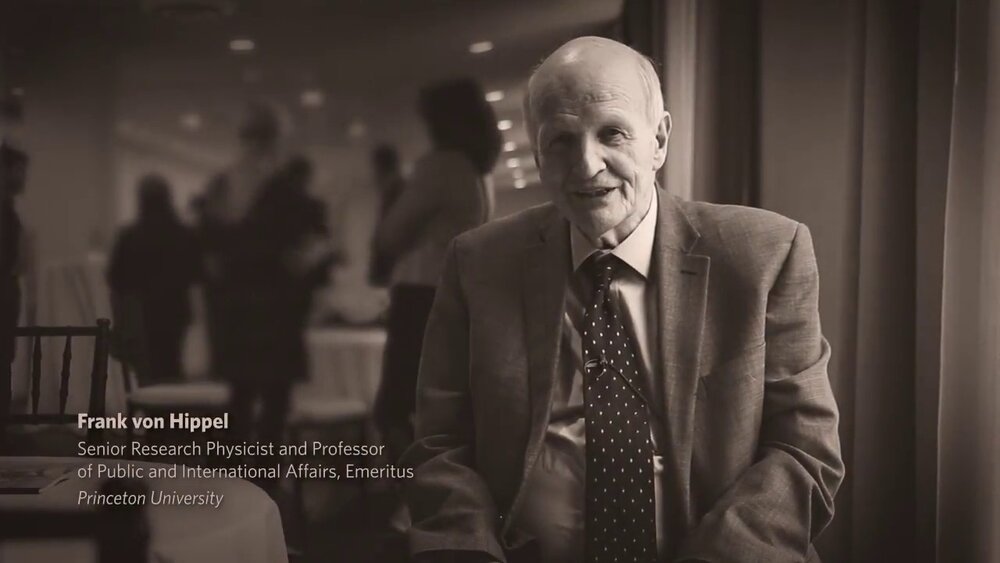It isn’t clear today that many Republicans learn from their mistakes: Princeton professor

TEHRAN - Frank von Hippel, a nuclear physicist and professor of public and international affairs emeritus with Princeton’s Program on Science and Global Security, believes that today it is not still clear that “many Republicans” have learnt “from their mistakes”, including their support for Donald Trump in in quitting the 2015 nuclear deal with Iran.
Analysts and the Biden administration officials say that Trump made a huge mistake by withdrawing from the nuclear deal, officially called the Joint Comprehensive Plan of Action (JCPOA).
For example, in an interview published on December 3, 2021, U.S. Secretary Antony Blinken said, “I think the decision to pull out of the agreement was a disastrous mistake.”
Blinken added “the JCPOA was a very effective agreement” that resulted in the “most effective and intrusive monitoring” of Iran’s nuclear activities.
Negotiations started in April 2021 to revive the nuclear deal after President Joe Biden said his administration is willing to rejoin the agreement. Six rounds of talks were held until June 20. There was a break in talks as Iran was seeing a new presidential election in which a new government came to power. However, talks were resumed on November 29 and now negotiators have made some inroads though some key issues still remain unresolved.
Yet there is a serious concern among the Iranians, officials, and the public alike, that the U.S. may renege on the agreement if a hawkish Republican wins the presidency in the future elections.
“Unfortunately, it is not clear today that many Republicans learn from their mistakes,” Von Hippel tells the Tehran Times in an email interview.
It is common sense that a country that first violated the nuclear deal naturally it should be the first one to show flexibility.
Von Hipple says, “I agree about the past. I believe, however, the Biden Administration recently finally did decide not to condition the U.S. rejoining the JCPOA on any other requirement.”
Iran is saying it does not seek anything beyond the JCPOA.
“Iran has been making demands that it is impossible for the Biden Administration to agree to, such as binding future U.S. administrations,” the professor said when asked why there is so much delay in putting the JCPOA on its right track.
Some analysts and politicians say the demand by Iran that the U.S. should provide guarantees that it will not leave the agreement again is quite understandable. However, they say this entails reconciliation between Iran and the United States.
Certain regional countries are worried about a possible normal relationship between Tehran and Washington. For instance, Shireen Tahmaasb Hunter, a professor of political science at Georgetown University, says, “Israel and its supporters in the U.S. have played key roles in preventing U.S.-Iran reconciliation.” She adds, “They have even contributed to the worsening of these relations. For example, in 1996 Israel's supporters played a key role in the passage of the Iran-Libya sanctions act.”
In fact, the Trump administration violated international law by revoking the JCPOA because the agreement has been endorsed by United Nations Security Council Resolution 2231.
However, Professor Von Hippel says from the U.S. viewpoint the JCPOA is an executive agreement and it needs the approval of the Senate to become a treaty.
“Unfortunately, on the U.S. side at least, the JCPOA is an executive agreement and not a treaty because President Biden could not get 67 of the 100 members of the Senate to support it. He cannot bind his successors,” Von Hippel notes.
“But I hope that any U.S. successor president would think twice before doing what President Trump did,” he adds.
On a view that if Iran sees goodwill by the West, then it might be possible that the sides cooperate with each other to settle other disputes in West Asia as well, the Princeton University professor emeritus says, “I certainly hope so. Both countries are divided, however, into ‘hawks and doves’. The doves say ‘negotiate!’ while the doves say ‘fight!’ So it will not be easy.”
In a letter on January 12, roughly 110 House Republicans called on the Biden administration to withdraw from ongoing negotiations in Vienna intended to revive the nuclear deal. According to the Hill, the lawmakers asked Secretary of State Antony Blinken to instead enforce existing sanctions against Tehran.
Mike Pompeo, who served as secretary of state under Trump in 2018-21 and as CIA director in 2017-18, is a fierce opponent of the Vienna talks. In an interview published on the Argus website on January 31, Pompeo boasted by saying, “We confronted it by starving the regime.”
Now the question is that if such Iran hawks, including Pompeo, are really worried about Iran’s nuclear program, such a situation will never favor them.
In a recent tweet, Democratic Senator Christopher Murphy said, “Iran got stronger and their behavior got more dangerous after we left the deal.”
On whether such hawks are clandestinely pushing for a war against Iran, he simply said, “Not so clandestinely!”
The nuclear physicist also believes that former Israeli prime minister Benjamin Netanyahu and certain Persian Gulf Arab rulers were instrumental in provoking Trump to quit the hard-won nuclear deal, saying, “Netanyahu certainly played a large role, as did the leaders of some of the Arab states.”
Von Hippel, who once worked at the White House during the Bill Clinton presidency, also called on the leaders of the countries involved in the Vienna talks to agree to what their negotiators have agreed on.
“My understanding is that it is now up to the leaders to accept what has been agreed among the negotiators. I hope they will do so quickly and that it will be possible for our two countries and the Arab states to end the wars in Yemen and Syria and begin to make the Persian Gulf region a more peaceful place by creating regional solutions to, for example, prevent a nuclear arms race,” he suggested.
